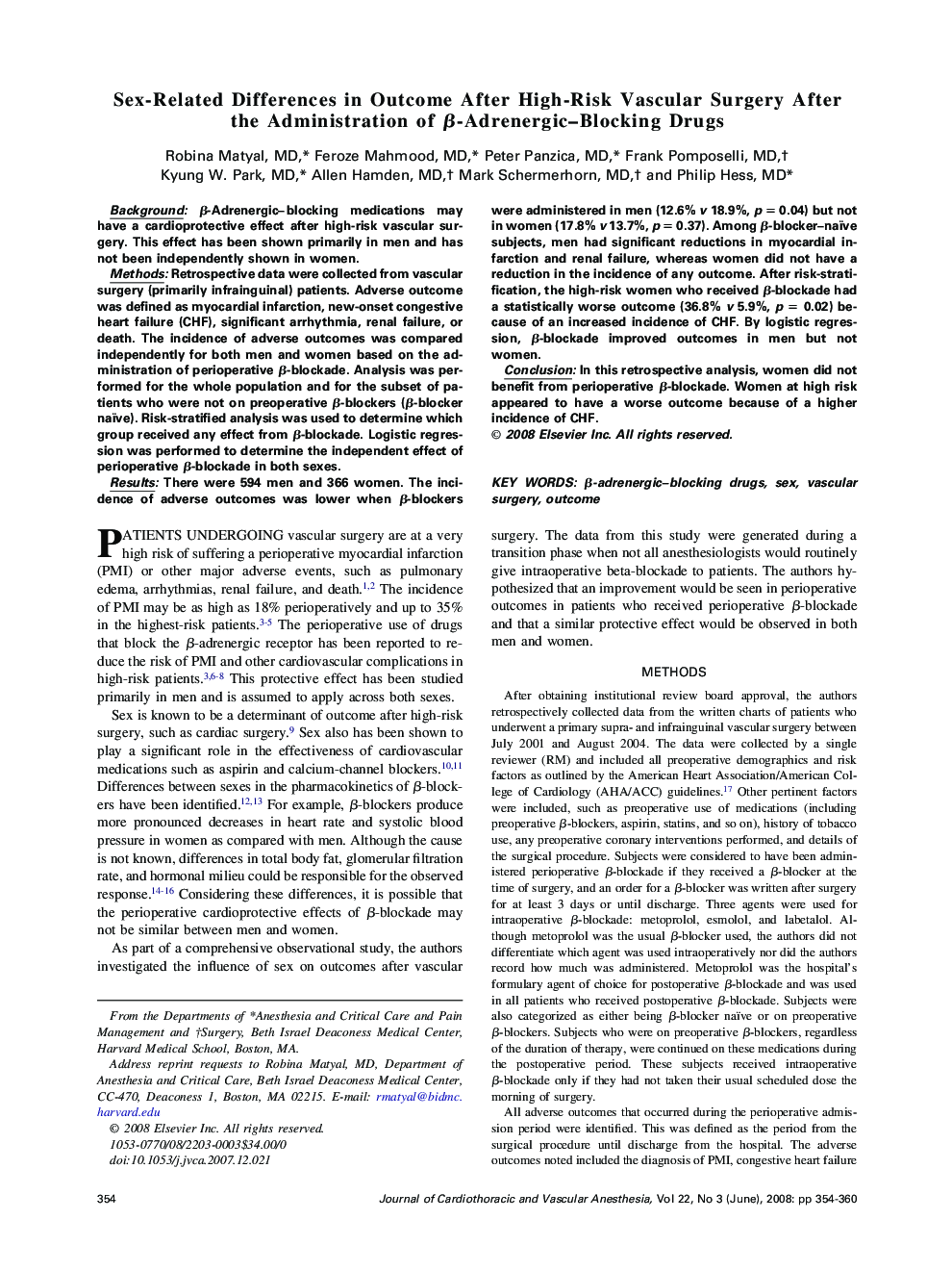| Article ID | Journal | Published Year | Pages | File Type |
|---|---|---|---|---|
| 2761059 | Journal of Cardiothoracic and Vascular Anesthesia | 2008 | 7 Pages |
Background: β-Adrenergic–blocking medications may have a cardioprotective effect after high-risk vascular surgery. This effect has been shown primarily in men and has not been independently shown in women.Methods: Retrospective data were collected from vascular surgery (primarily infrainguinal) patients. Adverse outcome was defined as myocardial infarction, new-onset congestive heart failure (CHF), significant arrhythmia, renal failure, or death. The incidence of adverse outcomes was compared independently for both men and women based on the administration of perioperative β-blockade. Analysis was performed for the whole population and for the subset of patients who were not on preoperative β-blockers (β-blocker naïve). Risk-stratified analysis was used to determine which group received any effect from β-blockade. Logistic regression was performed to determine the independent effect of perioperative β-blockade in both sexes.Results: There were 594 men and 366 women. The incidence of adverse outcomes was lower when β-blockers were administered in men (12.6% v 18.9%, p = 0.04) but not in women (17.8% v 13.7%, p = 0.37). Among β-blocker–naïve subjects, men had significant reductions in myocardial infarction and renal failure, whereas women did not have a reduction in the incidence of any outcome. After risk-stratification, the high-risk women who received β-blockade had a statistically worse outcome (36.8% v 5.9%, p = 0.02) because of an increased incidence of CHF. By logistic regression, β-blockade improved outcomes in men but not women.Conclusion: In this retrospective analysis, women did not benefit from perioperative β-blockade. Women at high risk appeared to have a worse outcome because of a higher incidence of CHF.
